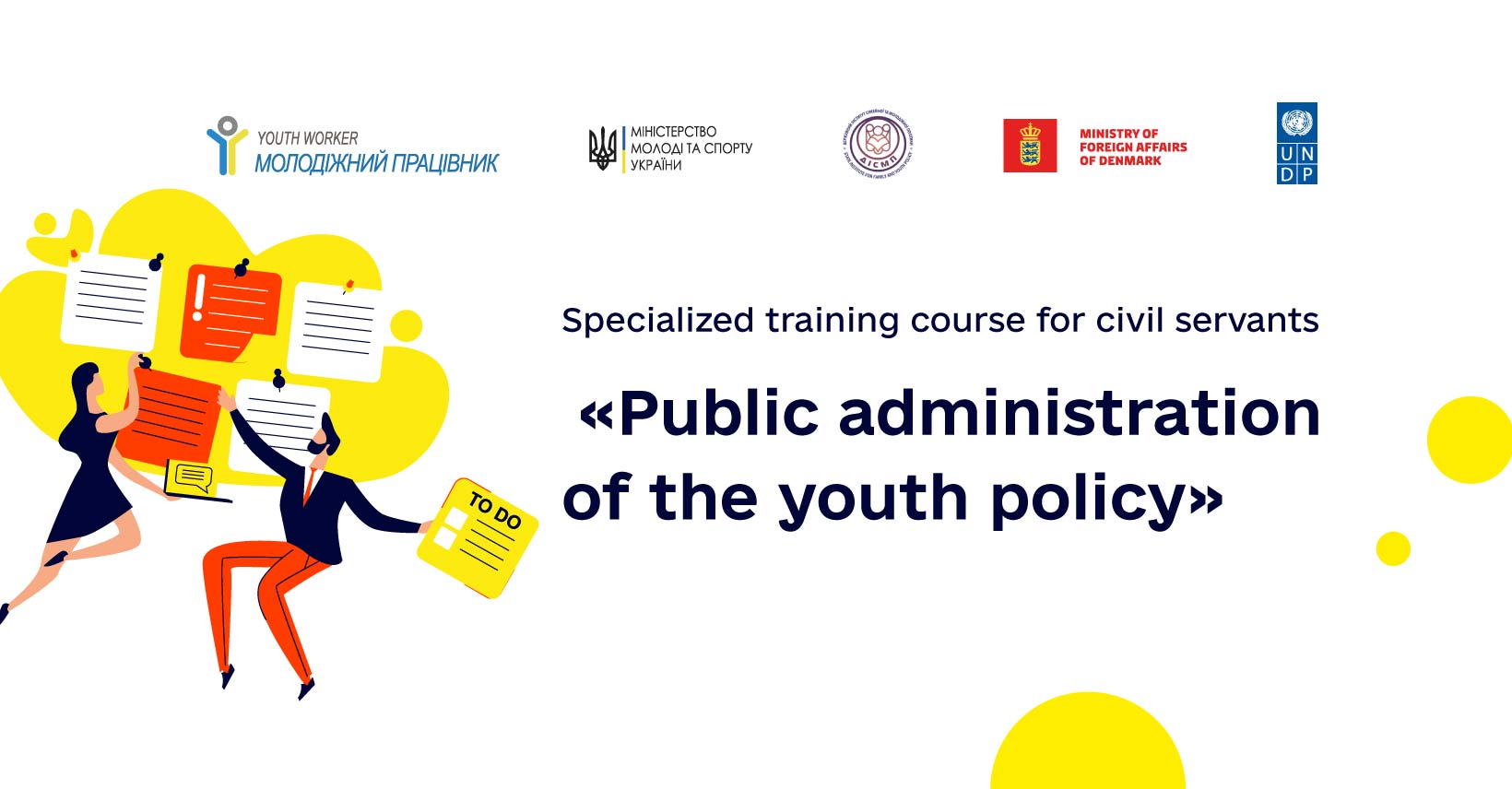To a great extent, a successful youth policy depends on the knowledge and competencies of the professionals who are responsible for implementing it at the local level. But there are also other factors at play: On the one hand, there has to be a regulatory framework in place, and an understanding of public administration; on the other hand, a large part of the work pertains to establishing cooperation and communication with civil society organizations, youth organizations, centres, councils, as well as with young people directly. All of this requires special knowledge and skills.
At the same time, in 2020-2021 a multitude of changes occurred in youth policy management at the national level. The Verkhovna Rada adopted the new Law of Ukraine “On the Basic Principles of Youth Policy”; the government approved the “National Youth Strategy until 2030” and the State Social Target Programme “Youth of Ukraine for the years 2021 to 2025.”
Those documents have significantly updated the vision of youth policy and placed the focus of attention on youth engagement at all levels, which is consistent with the best international standards for development of the youth area. The development of youth infrastructure, support for youth organizations, the development of volunteering, strengthening social cohesion, increasing young people’s mobility – all have become the main areas of youth policy at the national level.
“The COVID-19 pandemic has highlighted the dire need for the kind of transformational change (young people) seek – and young people must be full partners in that effort. But (they) cannot do it on their own. I urge everyone to guarantee young people a seat at the table as we build a world based on inclusive, fair, and sustainable development for all”
– António Guterres, UN Secretary General, 20 August 2021.
Civil servants and local self-government officials now face a challenge of updating regional and local programmes in line with national innovations. In response to the new challenges, the Ministry of Youth and Sports of Ukraine, supported by the UNDP project “Civil Society for Democracy and Human Rights in Ukraine,” which is funded by the Danish Ministry of Foreign Affairs, has developed a specialized training course “Public Administration of Youth Policy.”
The training programme explains the specifics of the updated youth policy and the algorithms and main tools for implementing it, such as how to create a structural unit in an administrative body, a targeted youth programme, a youth centre or space, a youth council, etc.
The training curriculum is informed by the findings of an online survey on the training needs of civil servants and officials at local government bodies working in the youth area, which was held in summer 2021 and collected 421 responses, from every oblast of Ukraine.
“It was arguably the first event ever to bring together youth specialists of all levels, from the national to local, in one training location! That fact alone makes it possible to state that the formula for success is the combination of the expertise of persons who shape youth policy with those who transform it into effective youth work!”
– Maryna Popatenko, Deputy Minister of Youth and Sports of Ukraine
In November 2021, 75 male and female participants from all over Ukraine attended the pilot training sessions.
“During the reflection, I heard how the participants of the training had re-imagined their further work, planned changes, and come up with new ideas. That is, the ball has been set rolling, and all of us, including myself, will use the new knowledge in our cities and communities.”
– Serhiy Ludensky, training participant
The course developers also prepared a manual with guidelines and tips that will be useful to all those who work in youth policy in the public sector.
In 2022, the Ministry of Youth and Sports plans to continue the course within the framework of the “Youth Worker” Programme.

 Locations
Locations




